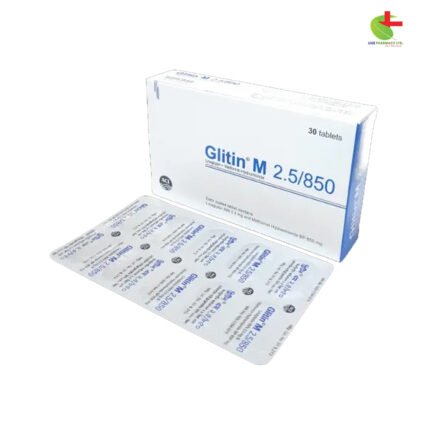Wella
80.00৳ Strip(10)
- Wella is a combination medication for treating moderate to severe depression and anxiety, providing relief from symptoms like insomnia, agitation, and suicidal thoughts.
- It contains Amitriptyline (a tricyclic antidepressant) and Chlordiazepoxide (an anxiolytic), working together to reduce anxiety and improve mood.
- Wella should be used under the supervision of a registered healthcare provider, with dosage adjusted based on individual response.
- Caution is advised in patients with a history of seizures or those with thyroid, renal, or liver issues.
 Brand
Brand
|
ACI Limited |
|---|---|
 Generics
Generics
|
Amitriptyline Hydrochloride + Chlordiazepoxide |
 Type
Type
|
Tablet |
Indications
Wella is prescribed for the treatment of moderate to severe depression, particularly in patients experiencing significant anxiety symptoms. In the initial week of treatment, improvements are commonly seen in symptoms such as insomnia, feelings of guilt, agitation, anxiety (both psychic and physical), suicidal thoughts, and anorexia.
Please use this medication only under the guidance of a registered healthcare provider.
Pharmacology
Wella combines Amitriptyline, a tricyclic antidepressant, and Chlordiazepoxide, an anxiolytic. Amitriptyline works by inhibiting the reuptake of norepinephrine and serotonin in the brain, thereby contributing to its antidepressant effects. Chlordiazepoxide enhances GABA receptor activity, promoting chloride ion influx and membrane hyperpolarization, leading to its sedative and anxiolytic effects.
Dosage & Administration
The recommended dosage varies based on the severity of the symptoms and the patient’s individual response. Once a satisfactory response is achieved, the dose should be reduced to the minimum amount needed for maintaining remission. A larger portion of the total daily dose can be taken at bedtime, and in some cases, a single bedtime dose may suffice. The starting dose typically ranges from 3 to 4 tablets per day in divided doses, or as directed by your physician.
Please use this medication only under the guidance of a registered healthcare provider.
Interactions
Due to its Amitriptyline content, Wella may reduce the effectiveness of antihypertensive medications like guanethidine or similar agents.
Contraindications
Wella should not be used by patients who are allergic to either benzodiazepines or tricyclic antidepressants. It should also not be taken with monoamine oxidase inhibitors (MAOIs).
Side Effects
Common side effects include symptoms associated with depression such as anorexia, fatigue, and weakness. Other side effects may include restlessness, lethargy, drowsiness, dry mouth, constipation, blurred vision, dizziness, and bloating. Less frequently reported adverse reactions include vivid dreams, impotence, tremors, confusion, and nasal congestion.
Pregnancy & Lactation
The safety of Wella during pregnancy and lactation has not been fully established. Use only if clearly needed and prescribed by a healthcare professional.
Precautions & Warnings
Wella should be used with caution in individuals with a history of seizures. Close monitoring is essential when treating patients with hyperthyroidism or those on thyroid medications. Patients with impaired renal or liver function should be carefully observed. Children and adolescents undergoing treatment with antidepressants should be closely monitored for signs of clinical worsening, suicidal thoughts, or unusual behavioral changes.
Use in Special Populations
- Pediatric Use: The safety and effectiveness of Wella in children and adolescents have not been established. The risks should be carefully weighed against the clinical need before prescribing.
- Geriatric Use: In elderly patients, the dosage should be minimized to avoid side effects such as ataxia, over-sedation, confusion, or anticholinergic effects.
Overdose Effects
Overdosing on Wella can be fatal. Key symptoms of Amitriptyline overdose include severe cardiac arrhythmias, hypotension, convulsions, and CNS depression (including coma). Symptoms of a Chlordiazepoxide overdose may include excessive sleepiness, confusion, coma, and reduced reflexes.
Sudden discontinuation of Chlordiazepoxide may result in withdrawal symptoms such as tremors, abdominal cramps, and vomiting. Similarly, abrupt cessation of Amitriptyline can lead to withdrawal symptoms like nausea, headache, and general discomfort.
Therapeutic Class
This product falls under the combined category of anxiolytics and antidepressant medications.
Storage Conditions
Store in a cool, dry place, away from light. Keep all medications out of the reach of children.













Reviews
There are no reviews yet.